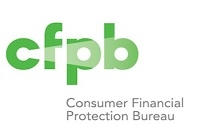Advertisement
Four MI Firms to Pay $15 Million-Plus in Penalties to the CFPB in Kick-Back Probe

The Consumer Financial Protection Bureau (CFPB) has announced four enforcement actions to end what the Bureau believes to be improper kickbacks paid by mortgage insurers to mortgage lenders in exchange for business. The CFPB filed complaints and proposed consent orders against four national mortgage insurance companies in order to stop these practices, which have been prevalent for more than 10 years. The proposed orders require the four mortgage insurers to pay more than $15 million in penalties to the CFPB.
“Illegal kickbacks distort markets and can inflate the financial burden of homeownership for consumers,” said CFPB Director Richard Cordray. “We believe these mortgage insurance companies funneled millions of dollars to mortgage lenders for well over a decade. The orders announced today put an end to these types of arrangements and require these insurers to pay more than $15 million in penalties for violating the law.”
The CFPB alleges that four mortgage insurance companies violated federal consumer financial law by engaging in widespread kickback arrangements with lenders across the country. The CFPB believes the mortgage insurers named in today’s enforcement actions provided kickbacks to mortgage lenders by purchasing captive reinsurance that was essentially worthless but was designed to make a profit for the lenders.
The four companies named are Genworth Mortgage Insurance Corporation, United Guaranty Corporation, Radian Guaranty Inc., and Mortgage Guaranty Insurance Corporation. In exchange for kickbacks, these mortgage insurers received lucrative business referrals from lenders. These types of kickbacks were a common practice in the years leading up to the financial crisis. These four companies were key players during that time.
“Genworth USMI agreed to settle this review so we can focus our resources on working with customers to help borrowers responsibly achieve and maintain homeownership, and to resolve the uncertainties inherent in such a review and any possible resulting litigation,” said Rohit Gupta, president and chief executive officer of Genworth USMI.
In accordance with the proposed settlement, the four mortgage insurance companies have agreed to change their practices and pay fines to the CFPB. Specifically, they have agreed to the following:
►End the practice: If entered by the court, the proposed orders will prevent these four mortgage insurers from engaging in this practice going forward. The mortgage insurers are prohibited from entering into any new captive mortgage reinsurance arrangements with affiliates of mortgage lenders, and from obtaining captive reinsurance on any new mortgages, for a period of 10 years. As pre-existing reinsurance arrangements come to a close, the mortgage insurers will forfeit any right to the funds not directly related to collecting on reinsurance claims. The mortgage insurers will also be prohibited from paying illegal kickbacks or otherwise violating the Real Estate Settlement Procedures Act. Any violation of these prohibitions could result in additional fines.
►Payment of more than $15 million in penalties: The four mortgage insurers will pay the CFPB a total of $15.4 million in penalties. The amount of the penalties reflects a number of factors, including each mortgage insurers’ finances, the pervasiveness of its conduct, its relative culpability, and its cooperation with the Bureau.
►Compliance monitoring and reporting: These companies will be subject to monitoring by the CFPB and required to make reports to the CFPB in order to ensure their compliance with the provisions of the orders.
The kickbacks at issue in the CFPB's actions were paid to the lenders through “captive reinsurance arrangements.” "Reinsurance” is simply insurance for insurance companies. Many insurance companies purchase reinsurance in order to cover their own risk of unexpectedly high losses. When a mortgage lender sets up a subsidiary company to provide reinsurance to the mortgage insurers, it becomes a “captive” arrangement. It is “captive” because the lender both originates the loan and, through its own subsidiary, provides the reinsurance.
“Private mortgage insurers paid more than $40 billion, several billion of which came from lender-affiliated reinsurance companies, to offset losses from defaulted mortgage loans during and after the financial crisis, providing much-needed liquidity and capital to help support the housing industry during the most severe crisis since the Great Depression,” Gupta said.
About the author





